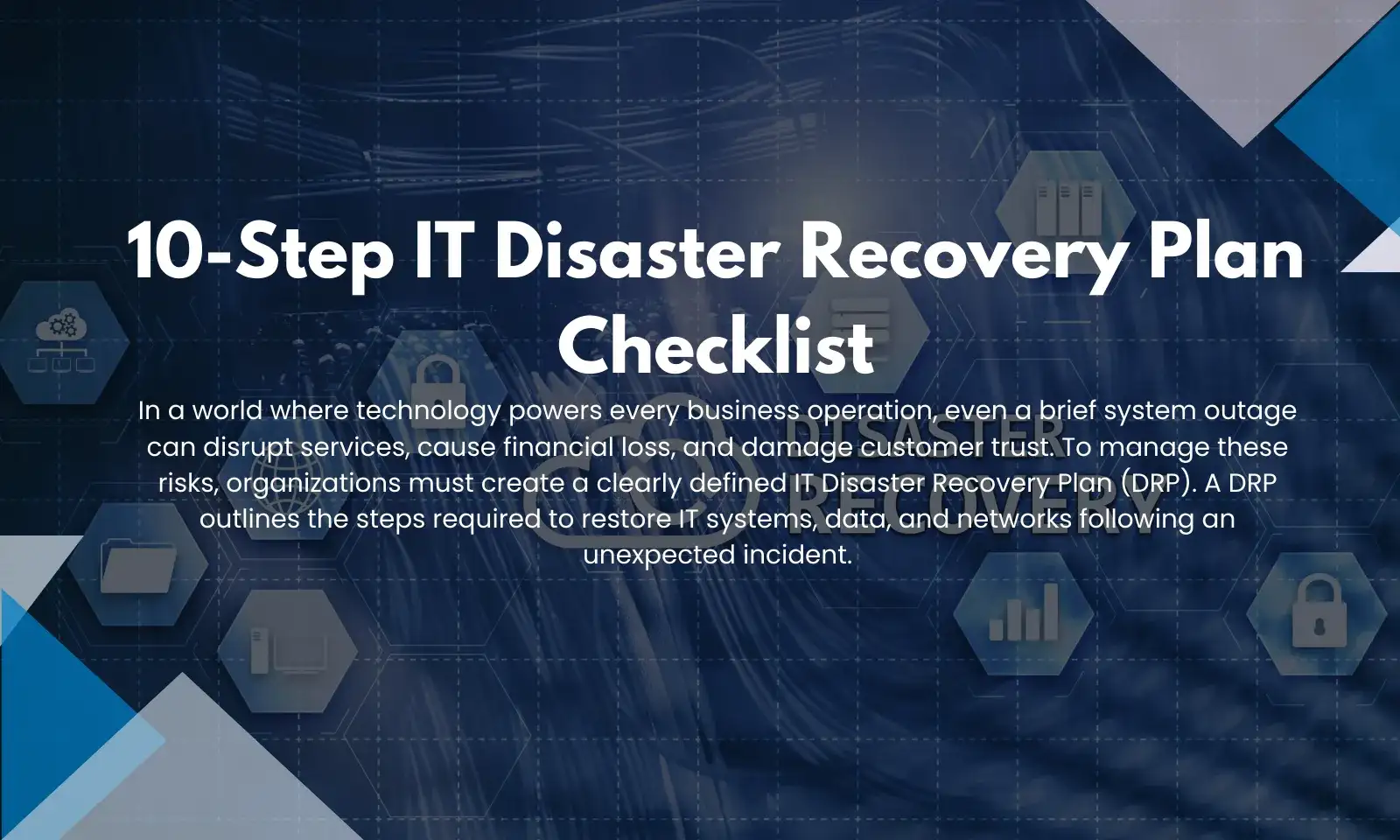What is an IT Support Technician?
An IT Support Technician is a professional responsible for maintaining and managing computer systems and networks to ensure efficient and secure functionality. These technicians play a critical role in today’s technology-driven world by ensuring that all technological operations within an organization run smoothly. Their responsibilities extend far beyond just fixing computers; they involve managing network security, updating systems, and ensuring data backup and recovery plans are in place.
IT support technicians are crucial because they ensure the operational continuity of an organization’s IT infrastructure, which is vital for day-to-day business functions. They are key players in troubleshooting problems and also provide maintenance and technical guidance to non-technical staff, helping them utilize technology effectively and securely. This broad range of responsibilities makes them indispensable in any organization that relies on technology.
Essential skills for IT Support Technicians include technical expertise in hardware, software, and networking, along with soft skills like problem-solving and effective communication. They typically hold degrees in fields such as Information Technology or Computer Science, with certifications like CompTIA A+ enhancing their qualifications and job prospects.
Career opportunities for IT Support Technicians are diverse and promising, with potential specializations in cybersecurity, cloud services, and network management. These roles offer pathways to advanced positions and emphasize the importance of continuous learning to keep pace with technological advancements. This dynamic career trajectory underscores their integral role in supporting and shaping the tech industry.
Table of Contents
Roles of an IT Support Technician
IT Support Technicians are pivotal to the smooth operation of modern businesses, ensuring that technology infrastructures function without interruption. Their roles are diverse and can vary widely depending on the organization’s size, industry, and specific technology needs. Here are the 8 primary roles IT Support Technician typically fulfill:
- Troubleshooting and Problem Solving: IT Support Technicians troubleshoot and resolve problems related to computer systems, hardware, and software. This includes diagnosing errors, fixing system crashes, and resolving network issues to keep operations running smoothly.
- Installing and Configuring Hardware and Software: Technicians install and configure new computer systems, software applications, and other technology components. They ensure that these installations are performed correctly and customize settings to meet the specific needs of their organization or end-users.
- Performing Maintenance and Updates: Regular maintenance of systems is crucial to prevent issues before they occur. IT Support Technicians perform routine checks and updates of software to secure systems and improve functionality. They also maintain hardware components to extend their usability and efficiency.
- Providing Technical Support and Training: Beyond resolving immediate technical issues, IT Support Technicians provide ongoing support and guidance to users. This may involve training employees on new systems or software, helping them understand and utilize technology more effectively.
- Ensuring Security and Backup: Ensuring security and backup in IT support involves a multi-layered approach to protect data, networks, and systems from cyber threats and data loss. IT Support Technicians are tasked with implementing robust security measures and reliable backup protocols.
- Network Management: Managing the organization’s network is another critical function. This includes setting up network connections, configuring routers and switches, and monitoring network performance to ensure reliable internet and intranet connectivity.
- Documentation: Accurate documentation is essential in IT support. Technicians document troubleshooting processes, repairs, and maintenance procedures. They also maintain records of software licenses, user complaints, and resolutions to help streamline future troubleshooting and maintenance work.
- Assessing and Recommending Technology Solutions: IT Support Technicians assess current technology setups and recommend new equipment or software that could enhance productivity or performance. They stay informed about the latest technology trends and solutions that could benefit their organization.
Career Prospects & Opportunities
The career landscape for IT Support Technicians is dynamic and expansive, bolstered by an ever-increasing dependence on technology across various industries. With businesses integrating more sophisticated technology systems, there is a heightened demand for proficient IT professionals to manage, maintain, and optimize these systems. IT Support Technicians are poised for a range of upward mobility opportunities within the tech field.
Starting typically in entry-level positions, technicians can advance to roles such as network administrator, IT manager, or cybersecurity specialist, depending on their areas of expertise and additional certifications. The field also offers diverse opportunities in various industries including technology, healthcare, finance, and education, reflecting its necessity in virtually every sector of the economy.
Additionally, the experience and skills gained in IT support roles often pave the way for more specialized positions that command higher salaries and greater responsibilities, such as IT consultant roles or positions focusing on specific technologies or solutions. Continuous learning and professional development are key to progressing in this dynamic career path.
Job Stability and Advancement
Job stability for IT Support Technician jobs is exceptionally high due to the critical role technology plays in modern business operations. Organizations across all industries require reliable IT support to maintain daily operations and secure digital assets, ensuring a consistent demand for skilled technicians. Additionally, the path for career advancement in IT support is clearly defined, with opportunities to move into specialized roles such as network administration, cybersecurity, or IT management. Continuous professional development and gaining relevant certifications can accelerate career growth, making IT support a promising field for long-term career prospects.
Remote Work Opportunities
Remote IT support roles are increasingly prevalent in sectors such as technology, finance, healthcare, and education, offering technicians the chance to work for companies around the world without the need for relocation. Remote positions often include managing networks, providing technical support, overseeing cloud services, and ensuring cybersecurity from a home office. This flexibility enables professionals to balance work-life dynamics more effectively while gaining exposure to a broad range of IT systems and practices.
Growth and Demand
The career prospects for IT Support Technicians are strong, with the Bureau of Labor Statistics projecting a growth in employment opportunities that outpaces the average for all other occupations. This growth is driven by an increasing reliance on complex information technology systems and the need to manage cybersecurity risks in essential business operations across sectors like healthcare, education, finance, and retail. The move towards automation and cloud computing further boosts demand for IT support professionals, as companies aim to enhance efficiency and ensure robust security. Technicians who continuously adapt to new technologies can expect significant career stability and advancement opportunities.
How much does an IT Support Technician Earn?
The salary range of an IT Support Technician spans from $45,151 to $55,434. Salaries in IT support vary depending on the level of experience, education, location, and specific industry.
Entry-level IT support technicians can expect competitive starting salaries, which significantly increase with experience and specializations. Advanced roles such as IT Managers or Network Administrators often command higher salaries and additional benefits.
Skills & Knowledges
An IT Support Technician must possess a balanced mix of technical and soft skills along with foundational knowledge to effectively manage and support the technological infrastructure of an organization. These skills are crucial for troubleshooting, maintaining, and improving IT systems.
Technical Skills
IT Support Technicians must possess a broad range of technical skills to effectively address the diverse issues they encounter daily. 6 Key technical skills IT support technician should have are:
- Hardware Knowledge: Understanding the physical components of computers and devices is essential. Technicians must be able to install, repair, and maintain desktops, laptops, and peripherals.
- Software Proficiency: Proficiency in installing, configuring, and troubleshooting software applications, including operating systems like Windows, macOS, and Linux, is necessary.
- Networking Basics: Knowledge of networking fundamentals, including TCP/IP, DHCP, and DNS. Setting up, managing, and troubleshooting network connections are daily tasks.
- Cybersecurity Fundamentals: Protecting systems against threats involves understanding firewalls, antivirus software, and other security protocols.
- Database Management: Skills in managing databases, understanding SQL, and maintaining data integrity are increasingly important.
- Cloud Services: Familiarity with cloud platforms, such as AWS, Microsoft Azure, or Google Cloud, is essential as many organizations move services to the cloud.
Soft Skills
Soft skills are essential for IT Support Technicians, complementing their technical abilities and enabling them to perform their roles effectively within diverse teams and client interactions. Here are 5 key soft skills crucial for IT Support Technician are:
- Problem-Solving: Ability to quickly find solutions to issues and think critically under pressure.
- Communication: Clear, concise communication skills are crucial, both for interacting with team members and explaining technical concepts to non-technical stakeholders.
- Patience and Empathy: Providing support often means dealing with frustrated users, requiring patience and the ability to empathize with their technological challenges.
- Time Management: IT Support Technicians must prioritize tasks efficiently to manage multiple issues simultaneously without compromising service quality.
- Continuous Learning: Technology evolves rapidly, and staying updated through continuous learning is crucial to maintaining relevant skills.
Foundational Knowledge
The foundational knowledge for IT Support Technicians involves a solid understanding of the core principles and practices of information technology:
- IT Best Practices and Standards: Understanding and applying IT best practices and standards ensures that IT operations are efficient and effective.
- Regulatory Compliance: Knowledge of relevant regulatory compliance requirements, such as GDPR or HIPAA, is important to ensure that the organization meets legal obligations.
- Project Management: Skills in managing projects, including planning, executing, and closing projects effectively, are beneficial for overseeing IT initiatives.
- Technical Documentation: Ability to create and maintain clear and accurate documentation of IT systems, processes, and user manuals aids in consistency and knowledge sharing.
- Educational Background (Degree/Certifications): A degree in Information Technology, Computer Science, or a related field is typically required. Certifications, such as CompTIA A+, Network+, or Cisco CCNA, enhance a technician’s credibility and skills.
Educational Background & Certifications
The educational and certification requirements for IT Support Technicians underscore the importance of a solid academic foundation and specialized training. Most employers require a minimum of an associate’s degree in Information Technology, Computer Science, or a related field.
Certifications play a crucial role in the field, with credentials like CompTIA A+ being fundamental for entry-level positions. These certifications validate the technician’s ability to handle essential IT support tasks and are often a prerequisite for employment. Advanced certifications, such as Cisco’s CCNA or Microsoft’s certified solutions expert (MCSE), can lead to higher positions and increased salary opportunities.
This combination of formal education and certifications not only prepares IT Support Technicians for a diverse range of challenges but also enhances their credibility and career prospects in the dynamic IT industry.
Educational Background
The educational requirements for IT Support Technicians are designed to ensure that they have the necessary knowledge and skills to effectively support and manage IT systems. Here’s an outline of the typical educational background and the significance of professional certifications in this field.
- High School Diploma: A focus on subjects like computer science, mathematics, and physics can provide a solid foundation for future studies and careers in IT.
- Vocational Training and Certificates: Vocational programs specifically designed for IT support, network administration, and computer hardware provide hands-on experience and essential technical skills.
- Associate’s Degree: A two-year degree in Information Technology, Computer Science, or Network Administration offers a balance between theoretical knowledge and practical skills, preparing students for entry-level positions.
- Bachelor’s Degree: Obtaining a four-year degree in Information Technology, Computer Science, or a related field can enhance job prospects and provide a comprehensive understanding of advanced IT concepts.
- Continuing Education: Participating in workshops, webinars, and classes is crucial for IT professionals to stay updated with rapidly evolving technologies and methodologies.
Certifications
Certifications are crucial for IT Support Technicians seeking to validate their skills and enhance job opportunities. Key certifications like CompTIA A+, Network+, Security+, and Cisco’s CCNA demonstrate a foundational understanding of critical IT functions from networking to security. Microsoft Certified Solutions Associate (MCSA) showcases proficiency in Microsoft technologies, and the ITIL Foundation certification highlights knowledge in IT service management. Collectively, these certifications not only open doors to advanced career paths but also position IT professionals as credible and knowledgeable experts in their field.
- CompTIA IT Fundamentals (ITF+): Provides a basic understanding of IT concepts, making it suitable for beginners.
- CompTIA A+: One of the most essential certifications for IT Support Technicians, covering a wide range of issues from networking and operating systems to security and mobile devices.
- Microsoft Certified Solutions Expert (MCSE): For those specializing in Microsoft systems, MCSE certification demonstrates in-depth knowledge of Windows servers, databases, and enterprise solutions.
- Cisco Certified Network Associate (CCNA): Offers a deeper understanding of network fundamentals, security, and automation, essential for roles that involve managing network infrastructures.
- CompTIA Network+: Enhances understanding of networking concepts across various platforms and devices.
- CompTIA Security+: Focuses on core security functions, making it crucial for technicians looking to specialize in cybersecurity.
- ITIL Foundation: Provides knowledge about IT service management (ITSM) best practices, which is beneficial for managing IT services and operations effectively.
These certifications not only validate a technician’s skills but also significantly enhance career opportunities by demonstrating their expertise and commitment to professional development. They are widely recognized by employers and can often be the determining factor in hiring decisions. Moreover, they keep IT professionals versatile and competitive in a field that is continually changing.



